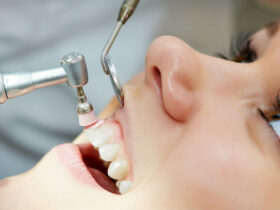One common question that arises after wisdom tooth extraction is how long one should wait before smoking.
While the desire to smoke may be strong, it is important to understand the potential risks and complications that smoking can have on the healing process.
The importance of avoiding smoking
Once your wisdom teeth have been removed, it is crucial to understand the importance of avoiding smoking during the healing process. Smoking can have significant negative effects on the recovery of the extraction site and overall healing.
First and foremost, smoking introduces harmful chemicals and toxins into your body, which can impede the healing process and increase the risk of infection. The act of inhaling smoke can also disrupt the blood clot that forms in the extraction site, leading to a condition known as “dry socket.”
Furthermore, smoking can hinder the blood flow to the gums and reduce the oxygen levels, which are essential for proper healing.
The healing process
After the extraction of wisdom teeth, the initial phase of healing involves the formation of a blood clot at the extraction site. This blood clot serves as a protective barrier, promoting the growth of new tissue and bone in the area.
Smoking can disrupt this healing process. The chemicals in cigarettes not only introduce toxins into the body but also decrease blood flow and oxygen levels, hindering the formation of new tissue and impairing the overall healing process.
Risks of smoking too soon
Smoking too soon after wisdom teeth removal can pose significant risks to the healing process. As mentioned earlier, smoking introduces toxins into the body and diminishes blood flow and oxygen levels.
One of the most common complications associated with smoking too soon is a condition called dry socket. Dry socket occurs when the blood clot that forms at the extraction site becomes dislodged or dissolves, leaving the bone and nerves exposed.
It is also advisable to consult with your dentist or oral surgeon for personalized guidance on when it is safe to resume smoking.
Waiting period before smoking
After wisdom teeth removal, it is crucial to wait for a sufficient period before resuming smoking. While the exact waiting time may vary depending on individual healing progress, it is generally recommended to refrain from smoking for at least 72 hours.
During the initial days after surgery, the extraction sites are vulnerable and need adequate time to heal properly. Smoking can hinder this healing process, as it introduces harmful chemicals and decreases blood flow, which are essential for tissue regeneration.
To effectively manage nicotine cravings during this waiting period, there are various strategies you can employ. One option is to consider nicotine replacement therapy, such as nicotine patches or gum, to help alleviate cravings without the risks associated with smoking.
Alternatives to smoking during the recovery period
If you’re wondering how to cope with nicotine cravings during the waiting period after wisdom teeth removal, there are several alternatives to smoking that can help you manage your cravings effectively.
Nicotine patches and gum are commonly used forms of NRT. These products deliver a controlled amount of nicotine to your bloodstream, reducing the intensity of withdrawal symptoms and cravings.
Engaging in alternative activities can also distract your mind and keep your hands busy, helping to reduce the urge to smoke.
It’s important to find healthy ways to manage nicotine cravings during the recovery period to support the healing process and protect your oral health. By utilizing alternatives to smoking and implementing strategies to distract your mind.
Conclusion
Taking care of your oral health should always be a top priority, even during challenging periods like the recovery after wisdom teeth removal. Smoking during this time can compromise your healing process and potentially lead to complications.
By exploring alternatives to smoking, such as nicotine replacement therapy, and engaging in alternative activities to distract your mind, you can effectively manage nicotine cravings and protect your oral health.
Prioritizing your oral health means prioritizing your overall well-being. So, make the conscious effort to find healthy ways to cope with nicotine cravings during the recovery period.










Hello!! My name is Jeanine
I love to eat, travel, and eat some more! I am married to the man of my dreams and have a beautiful little girl whose smiles can brighten anyone’s day!